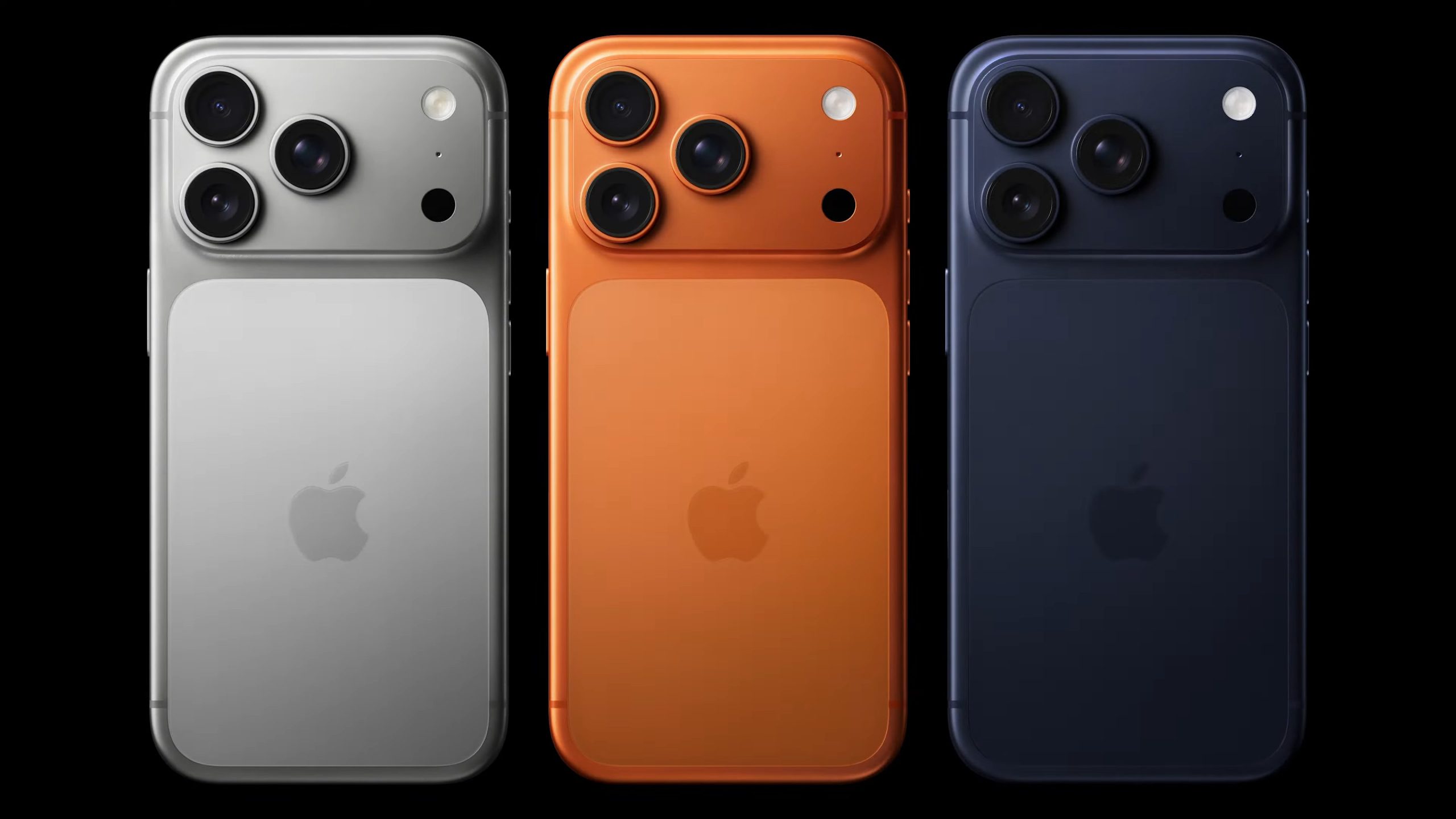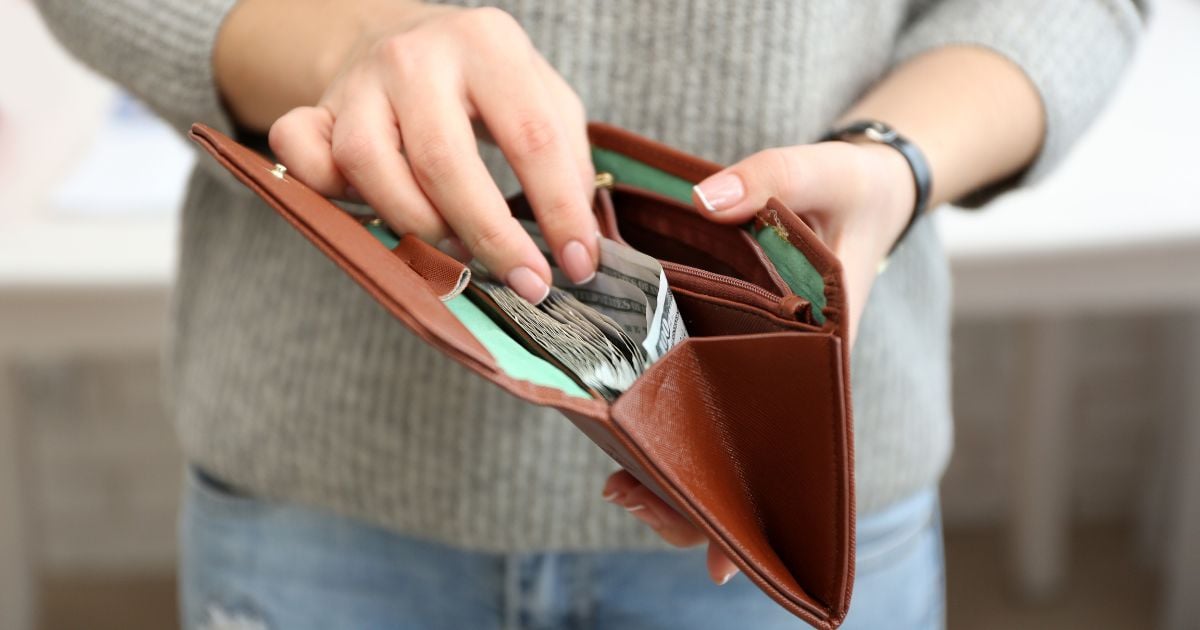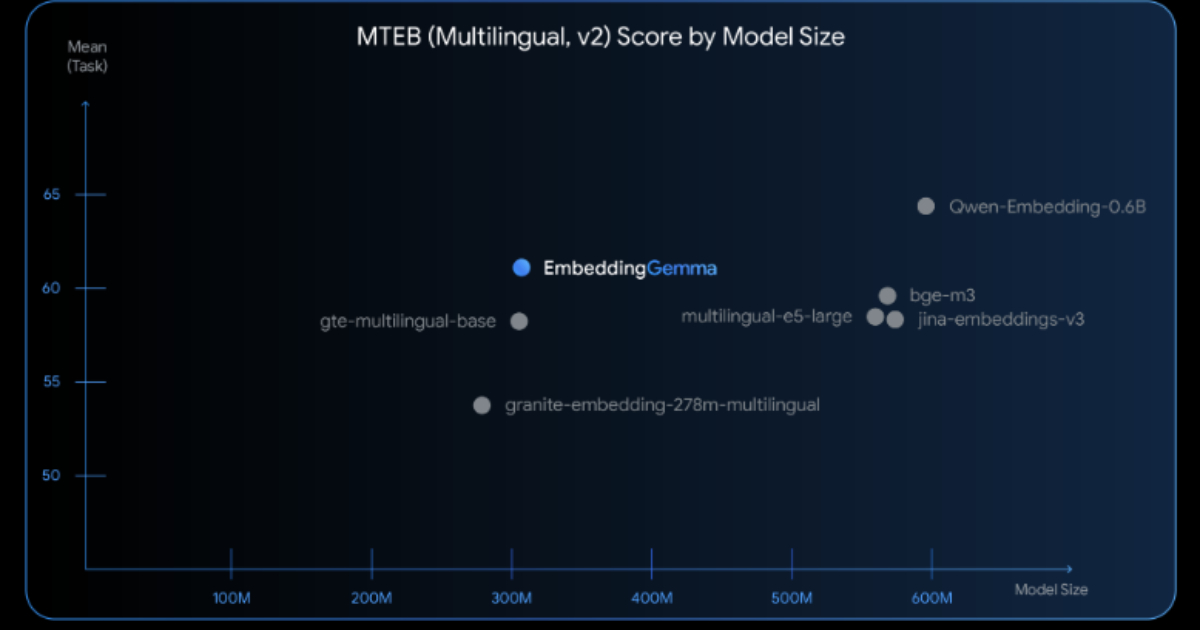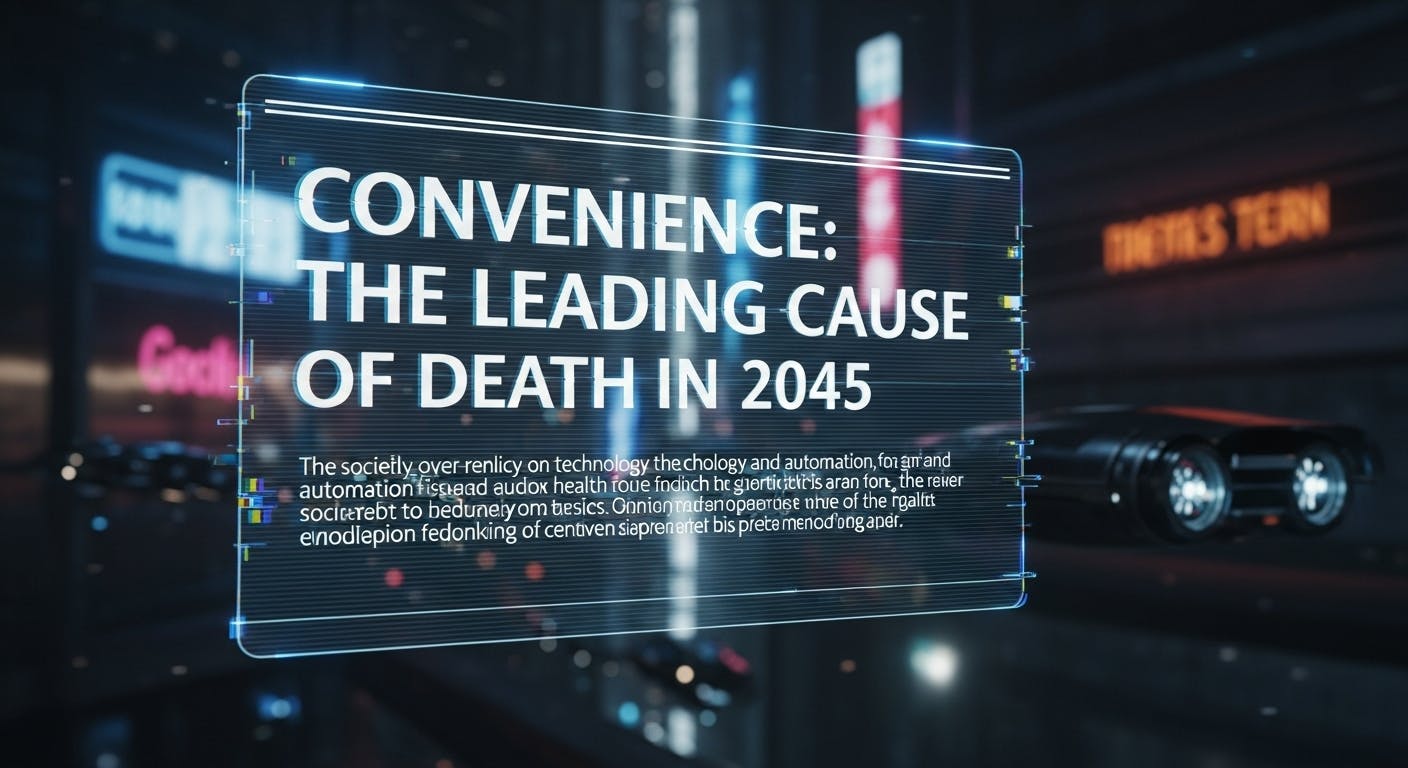The iPhone 17 lineup, featuring the iPhone 17, iPhone Air, iPhone 17 Pro, and iPhone 17 Pro Max, will be released on September 19, 2025. But in Nigeria, Kenya, and South Africa, where there are no official Apple Stores, buyers have only two options: order from abroad or buy through local vendors.
On paper, shipping directly from the US, UK, or Dubai may seem cheaper. In practice, the math rarely works out. Shipping fees, import duties, and volatile exchange rates quickly erase any savings. New regulations in each country add more friction, from extra paperwork to customs delays and surprise charges.
For most buyers, the supposedly cheaper option becomes the more expensive and stressful one. That’s why many end up choosing local vendors, who may charge a premium but save customers the uncertainty and headaches of importing.
Here’s what the starting prices look like for the new iPhone lineup:
- iPhone 17 (256GB): $799
- iPhone Air: $999
- iPhone 17 Pro: $1,099
- iPhone 17 Pro Max: $1,199
These prices serve as the baseline for calculating the total cost of purchasing from abroad and shipping to Nigeria, Kenya, or South Africa. Once you add shipping, taxes, and customs duties, the figure can be much higher than the sticker price you see online.
Buying the iPhone 17 from International Stores
If you live in Nigeria, Kenya, or South Africa, you can’t order directly from Apple’s U.S. store and get delivery to your doorstep. Apple and most major retailers, such as B&H Photo, don’t ship directly to African countries, leaving most buyers to rely on third-party reshipping services.
Companies such as comGateway and ColisExpat give you a U.S. or European address. You ship your order there, and they forward it to your country. Some even consolidate packages, which can lower weight-based shipping costs by as much as 80%. But these services come at a price. For example, if you use comGateway’s “BuyForMe” option (needed when a store rejects non-U.S. cards), you’ll pay an extra 10% fee on top of your shopping cost.
While reshippers make the process possible, they add another layer of cost you need to factor into your budget.
Shipping carriers and extra costs
Once your iPhone 17 is ready to ship, international couriers like DHL, FedEx, or UPS handle the delivery. They provide secure shipping, tracking, and express options, but they aren’t cheap.
Here’s what to keep in mind:
- Shipping calculators only give rough estimates. The final cost depends on the package size, weight, and exchange rates.
- Customs duties and taxes are added at the point of entry into Nigeria, Kenya, or South Africa.
- High-value electronics like the iPhone 17 often require insurance and special handling because of the lithium-ion battery. These extras can quickly push up the total cost.
If you’re planning to import, you should always budget a little more than the estimate to cover unexpected fees.
How to buy and ship the iPhone 17 in Nigeria
If you’re in Nigeria and hoping to get the iPhone 17 quickly, you’ll notice that local online stores like Jumia don’t yet have the phone in stock. Most listings are for cases, protectors, or older models. Apple-authorised resellers usually receive stock later, but prices are always higher than those abroad.
For context, the iPhone 15 Pro Max is currently priced around ₦2.5 million, while the iPhone 16 Pro Max can go as high as ₦3.7 million. With this trend, the iPhone 17 Pro Max will likely enter the market at an even higher price once it becomes available.
Import duties, taxes, and final costs
When you ship the iPhone 17 to Nigeria, you’ll pay more than just the U.S. retail price. Customs applies multiple charges, including:
- 5% tariff on electronics
- 7.5% Value Added Tax (VAT)
- 0.5% ECOWAS levy
- 1% Comprehensive Import Supervision Scheme (CISS)
- 0.5% ECOWAS Trade Liberalisation Scheme (ETLS) levy
In addition to these, customs officers often apply their own valuation of the phone, which can make the final amount unpredictable.
Legal and currency challenges
The import process in Nigeria is not straightforward. The Nigeria Customs Service (NCS) has a lengthy clearance procedure, which requires documents such as a Form M, a Proforma Invoice, and an Airway Bill. For most buyers, the only practical option is to use a licensed clearing agent to handle this process.
Another big challenge is the shortage of U.S. dollars. Due to the Central Bank of Nigeria’s restrictions on foreign exchange access, many individuals face difficulties paying for international purchases or customs fees in dollars. This drives up costs further and is a significant reason why buying the iPhone 17 locally is often more expensive than in other markets.
How to buy and ship the iPhone 17 in Kenya
If you’re in Kenya and want an iPhone 17, you’ll have two main options: buy from local phone stores or attempt to import one yourself. Popular retailers like Silkroom and Phoneplace Kenya already list the iPhone 17 at prices starting from KES 99,000 to KES 113,600, while the iPhone 17 Pro Max goes as high as KES 199,000.
At first glance, importing may look cheaper, but once you add shipping, insurance, and taxes, the cost quickly climbs. That’s why many buyers end up comparing the final import price with what local shops already offer.
Import duties and taxes in Kenya
Kenya recently changed how it taxes mobile phones, and this directly affects the iPhone 17’s final price. Under the East African Community (EAC) Common External Tariff, the duty on mobile phones was raised to 35% in July 2022. On top of that, you pay:
- 16% VAT
- 3.5% Import Declaration Fee
- 2% Railway Development Levy
Altogether, these charges make importing an iPhone 17 extremely expensive. The government introduced this system to make importing less attractive and push for more local phone assembly. For you as a buyer, it means importing doesn’t usually save money compared to buying locally.
New IMEI rules for imported phones
On January 1, 2025, Kenya made another big move. If you import an iPhone 17, you must declare its IMEI number at customs. This rule helps the Kenya Revenue Authority and the Communications Authority of Kenya block counterfeit phones and track devices more closely.
If you don’t declare the IMEI, your phone can be “greylisted,” giving you a short time to comply, or “blacklisted,” which means it will never work on Kenyan networks. This step effectively shuts down the “grey market,” where people used to bring in phones without paying full taxes.
For you, this means buying an iPhone 17 from abroad is now riskier. If the IMEI isn’t properly declared, the phone may not even connect to local mobile networks.
How to buy and ship the iPhone 17 in South Africa
In South Africa, most people get new iPhones through network contracts. Companies like Vodacom and MTN dominate this model, letting you pay for the device over 24 or 36 months while staying on their network.
If you prefer to pay cash, you can buy directly from authorised stores such as iStore and Apple-authorised resellers. Prices for new iPhones in South Africa already range widely, often between R10,000 and R30,000, depending on the model and storage. When the iPhone 17 officially launches locally, you’ll need to weigh the cash price against the total cost of paying in monthly instalments under contract.
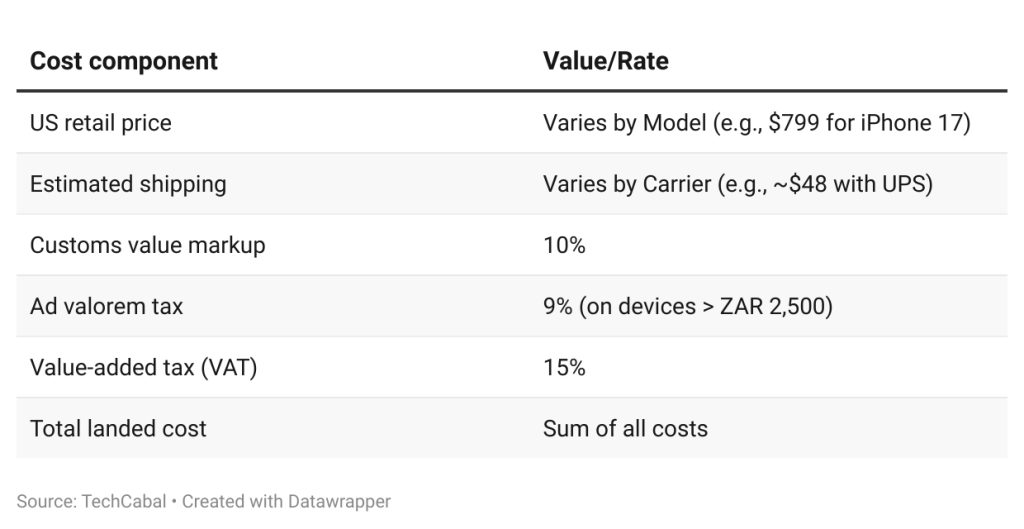
Import taxes and new policy changes
If you decide to import the iPhone 17 instead of buying locally, taxes will significantly raise the cost. South Africa charges 15% VAT on imports, calculated on the customs value plus an extra 10% markup for goods coming from outside the BLNS customs union (Botswana, Lesotho, Namibia, and Swaziland).
There’s also an ad valorem tax, a luxury duty that applies to high-value items. As of April 1, 2025, the government scrapped this tax for smartphones priced under ZAR 2,500 to make cheaper devices more accessible and speed up the shift to 4G and 5G networks. However, since the iPhone 17 starts at $799, which is far above that threshold, the exemption doesn’t apply.
For you as a buyer, this means the iPhone 17 and other premium models still face both VAT and the ad valorem duty, keeping them firmly in the luxury category in South Africa.
What to keep in mind before importing
When you import an iPhone 17, the most significant risk is ending up with a fake or refurbished device. Many third-party sellers online look trustworthy, but deliver something different. To protect yourself, you should always check the phone’s serial number on Apple’s official website.
You can find the serial number by going to Settings > General > About. If the model number starts with M, the device is new. F means it’s refurbished, and N means it’s a replacement. You can also do a quick physical check. Original iPhones use pentalobe screws, don’t have extra slots for microSD cards, and run iOS, which connects smoothly with iTunes.
Warranty restrictions you need to know
Even if you buy from a legitimate store abroad, Apple’s warranty may not cover you in Nigeria, Kenya, or South Africa. Apple has a one-year warranty, but service is often restricted to the country where the phone was first sold. That means if you buy in the U.S. and ship it home, you may not get support from your local Apple Authorised Service Provider.
If the phone develops a hardware problem, you could be stuck without any warranty protection. One repair can easily cancel out any money you thought you saved by importing.
The hack – How buyers in Nigeria, Kenya, and South Africa really do it
While importing through courier services is possible, sellers in Lagos, Nairobi, and Johannesburg advised us that there’s a more straightforward method to use for cutting costs and avoiding fake devices.
1. Order directly from Apple’s website
Apple doesn’t ship to Nigeria, Kenya, or South Africa directly. But you can buy the phone online and send it to a trusted contact in the U.S., U.K., or Dubai. From there, they can either bring it home when travelling or forward it through DHL, FedEx, Aramex, etc.
2. Why this works
Because you’re buying straight from Apple, you’re guaranteed a factory-unlocked, genuine iPhone with no grey-market risks. And the cost? Often ₦1.6m–₦1.8m in Nigeria (or the equivalent in KSh/ZAR), compared to ₦2.2m or more when buying through local resellers.
3. What the sellers say
Desmond, a gadget seller at Computer Village in Lagos, said, “Most people don’t know Apple lets you pay directly with a Visa or Mastercard from Nigeria. The trick is to have someone receive it abroad. That way, you cut out the middlemen and save hundreds of dollars.”
Wanjiru, who runs a phone shop in Nairobi’s Luthuli Avenue, explained: “Here, resellers add heavy markups because of duty and IMEI registration. If you can route your order through a friend or family member in the U.S. or U.K., then send it with DHL, you’ll still save 40–60K KSh compared to local shop prices.”
Sipho, a reseller in Johannesburg’s Sandton City Mall, added: “Even with South Africa’s VAT and duties, the direct Apple route is cheaper. I advise clients to ship to a relative in London or New York, then courier it down. At least you know your device is authentic and not refurbished.”
Should you import the iPhone 17?
If you’ve got family or friends abroad, the smartest way to get the iPhone 17 into Nigeria, Kenya, or South Africa is to buy directly from Apple, ship it to them, and have them bring it home. That way, you dodge inflated reseller markups and know you’re getting a genuine, factory-unlocked device.
No plug overseas? A trusted clearing agent can still help you ship through Apple or an authorised courier—usually safer (and sometimes cheaper) than betting on random third-party sellers.
But here’s the catch:
- Nigeria: import duties, customs delays, and dollar scarcity make costs unpredictable.
- Kenya: a 35% duty and mandatory IMEI registration mean grey-market imports are now pricier than local stock.
- South Africa: the luxury tax relief for cheaper smartphones doesn’t apply here—you still face 15% VAT plus luxury duty.
For most buyers, the safest bet remains authorised local retailers or network providers. Yes, you’ll pay more upfront, but you’re guaranteed compliance, warranty coverage, and peace of mind—things no shady import can promise.

